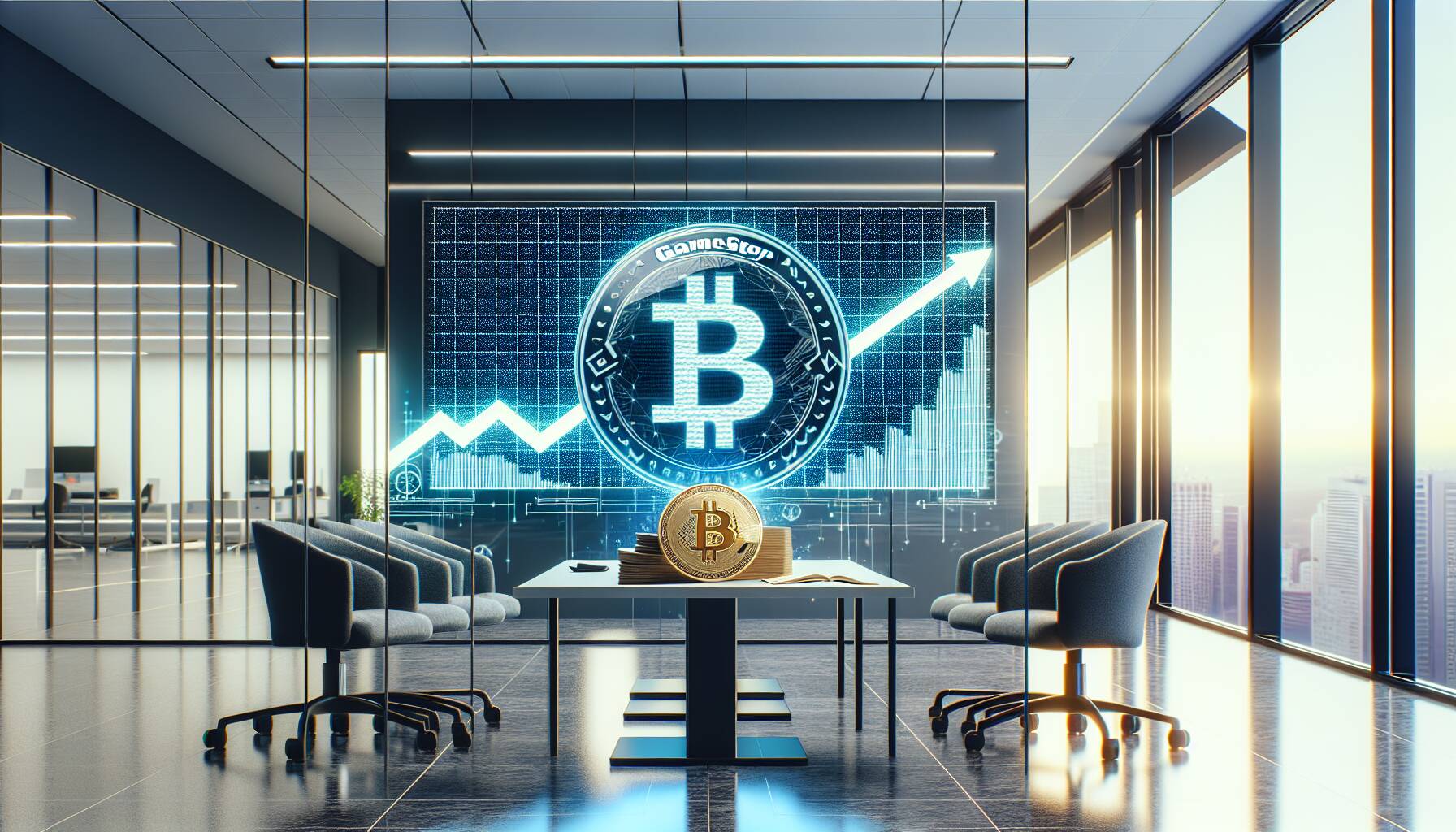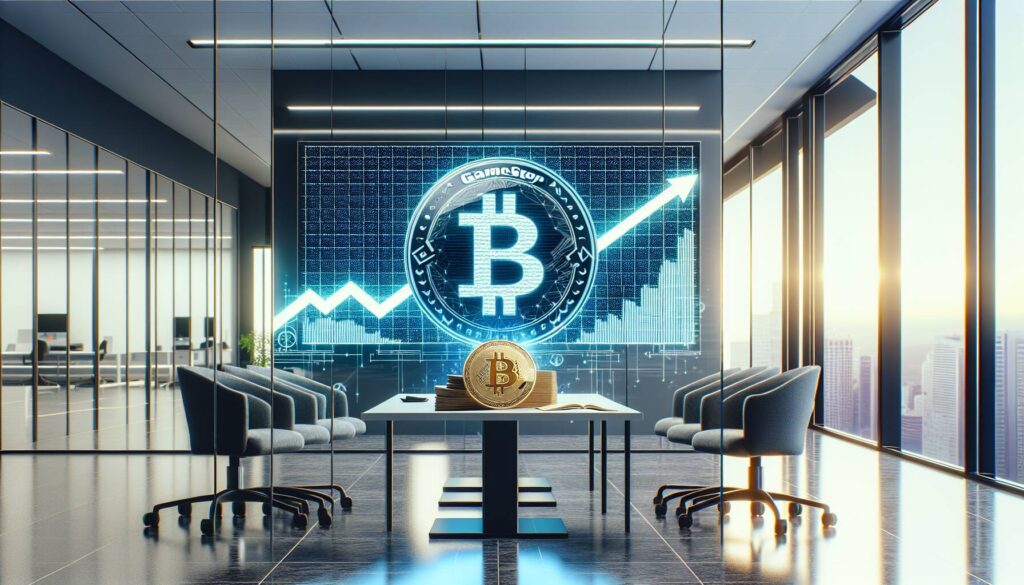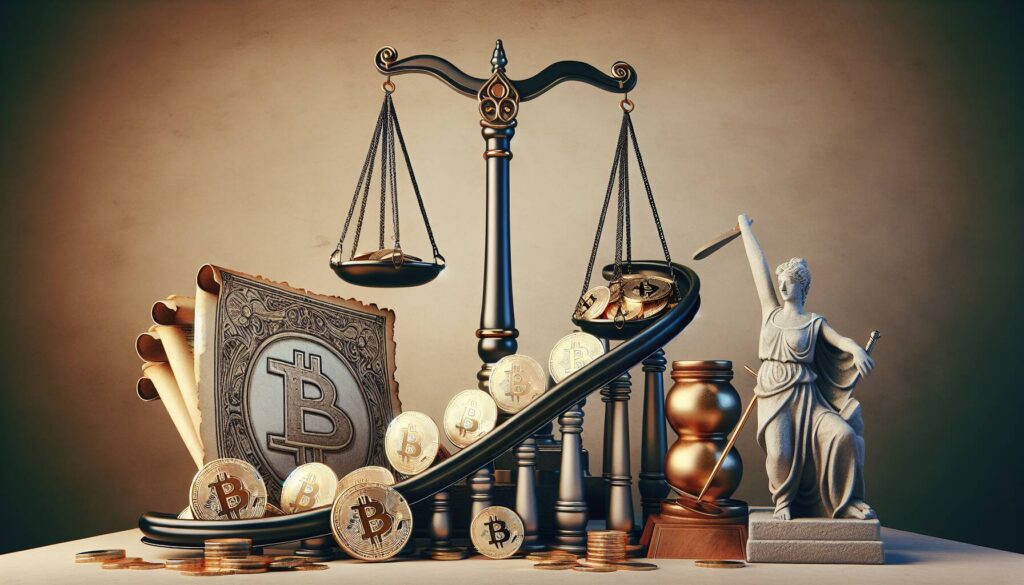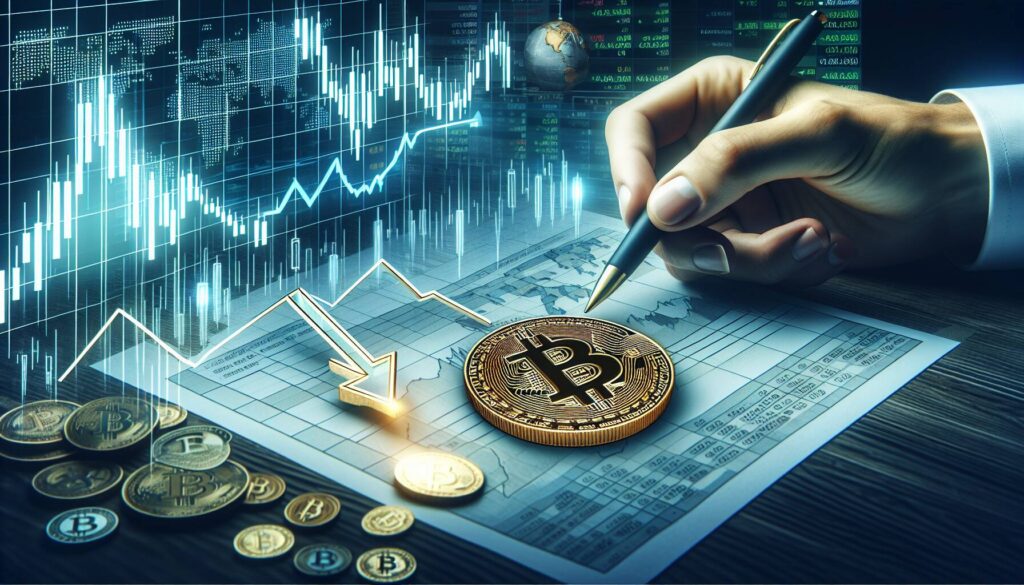In a significant move that has the cryptocurrency community abuzz, GameStop (GME) has officially embraced a bitcoin treasury strategy, adding its name to the growing list of publicly-traded companies that view bitcoin as a viable treasury reserve asset. This announcement came alongside GameStop’s fourth quarter earnings report, where the company’s board unanimously approved this forward-thinking strategy.
GameStop’s CEO, Ryan Cohen, who has been under the spotlight for his ambitious vision for the company, recently sparked speculation when he was spotted with MicroStrategy Executive Chairman Michael Saylor at Mar-a-Lago. This meeting led to a wave of discussions about how GameStop could leverage its significant cash reserves, which nearly total billion, to invest in bitcoin.
“We believe GameStop has an incredible opportunity to transform its financial future by becoming the premier bitcoin treasury company in the gaming sector,” said Matt Cole, CEO of Strive Asset Management, who urged Cohen to consider allocating some of the company’s cash towards bitcoin investments. Strive Asset Management is a notable stakeholder in GameStop through its ETFs.
The excitement following the announcement has resulted in a notable uptick in GME’s shares, which rose 5.7% in after-hours trading. Bitcoin itself has seen a modest increase, now trading at ,500, reflecting a 0.2% rise from the previous day. As more companies delve into the world of cryptocurrency, GameStop’s bold step could signal a major shift in the gaming industry and its financial strategies.

GameStop’s New Bitcoin Strategy: Implications for Investors
GameStop (GME) has recently adopted a bitcoin treasury strategy that could significantly impact its financial future and attract attention from investors. Here are the key points related to this development:
- Bitcoin Treasury Strategy: GameStop’s board unanimously approved the addition of bitcoin as a treasury reserve asset, aligning the company with a growing trend among publicly-traded firms.
- CEO’s High-Profile Meeting: CEO Ryan Cohen was seen with Michael Saylor, a prominent figure in the cryptocurrency space, sparking discussions about potential shifts in GME’s financial strategy.
- Call to Action from Investors: Strive Asset Management’s CEO, Matt Cole, urged GameStop to utilize its nearly billion cash reserves to invest in bitcoin, highlighting investor interest in innovative financial strategies.
- Market Reactions: Following the announcement, GME shares climbed 5.7% in after-hours trading, indicating positive investor sentiment, while bitcoin showed a slight gain, trading at ,500.
“We believe GameStop has an incredible opportunity to transform its financial future by becoming the premier bitcoin treasury company in the gaming sector,” said Matt Cole, highlighting the potential for GME’s strategic pivot.
These developments suggest a shift not only in GameStop’s corporate strategy but also in the broader gaming and investment landscape, potentially impacting how investors view the interplay between traditional businesses and cryptocurrency.
GameStop’s Bold Move into Bitcoin: A Competitive Analysis
In a dynamic marketplace where innovation and strategic shifts can lead to substantial upheavals, GameStop (GME) is making headlines by adopting a bitcoin treasury strategy. This approach not only aligns GME with other progressive companies embracing cryptocurrencies but also carries a mix of advantages and challenges that could affect both its standing in the gaming industry and broader market dynamics.
Competitive Advantages: GameStop’s integration into the realm of digital assets positions it as a pioneering force in the gaming sector, especially as a crypto treasury company. This move could attract a new wave of technologically savvy investors looking for exposure to both the gaming industry and cryptocurrency. By holding bitcoin as a treasury reserve, GME may improve its asset liquidity and hedge against inflation, potentially increasing investor confidence in its long-term viability, especially after the company’s tumultuous past. Moreover, with CEO Ryan Cohen’s visibility in strategic discussions, including high-profile meetings with crypto leaders like Michael Saylor, GME is capitalizing on a brand evolution that resonates with younger, crypto-centric audiences.
Competitive Disadvantages: Despite the promising outlook, the volatility surrounding cryptocurrencies cannot be ignored. Bitcoin’s unpredictable nature might introduce risks to GameStop’s financial health, particularly if the asset experiences significant downturns. Additionally, while some investors may view GME’s foray into cryptocurrency favorably, others could question the company’s focus on gaming, fearing it distracts from its core operations. There may also be regulatory challenges ahead as governments continue to shape their stance on digital currencies, which could impede GME’s strategy.
This bold decision could greatly benefit enthusiastic investors who are eager to diversify with a company they believe has potential for radical transformation. Conversely, traditionalists within the gaming community who prefer a conventional business model might feel alienated, raising concerns about the company’s future direction. As GameStop navigates this new territory, the balancing act between innovation and core business integrity will be crucial in determining its success.

















